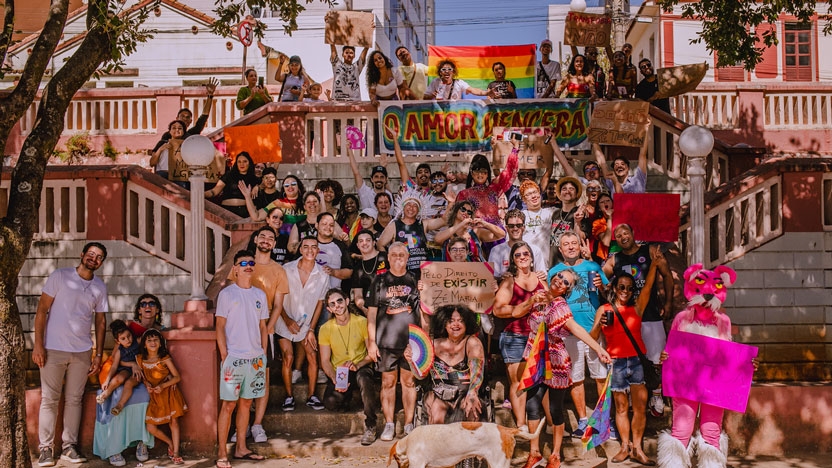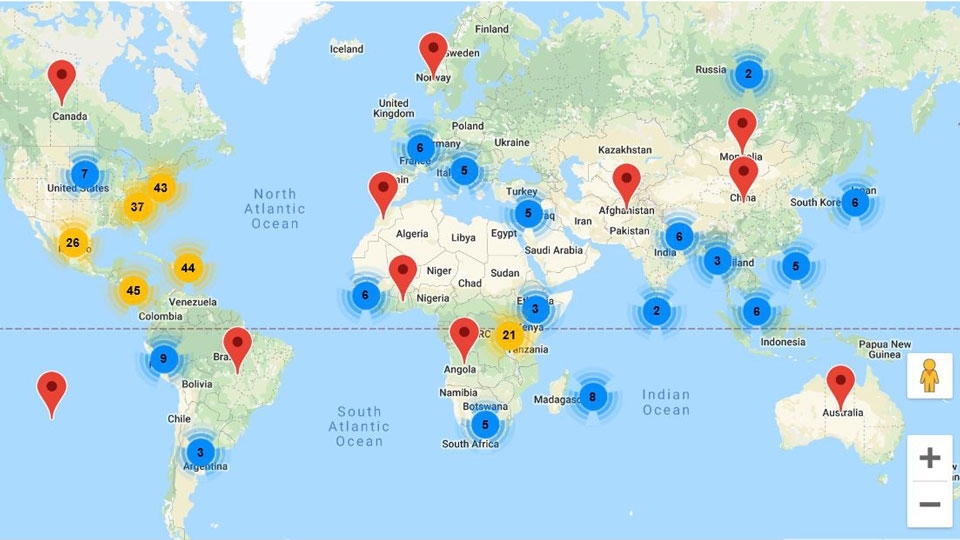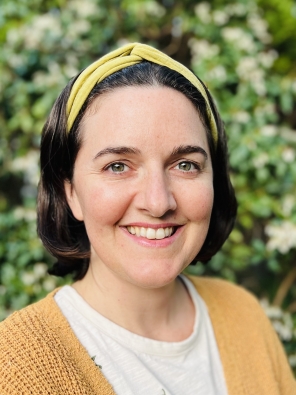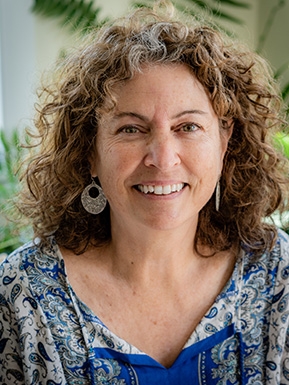Cross-Cultural Community Engagement Grants

The Cross-Cultural Community Engagement Fund (CCCE) supports international community service, advocacy, and activism.
How It Works
The Fund supports service-learning and community-building internships and/or related volunteer service opportunities for undergraduate students in international settings, or in communities that are not the students’ own. These community-engaged internships and service initiatives are usually student-designed.
The CCCE Fund was founded by and is endowed by a Middlebury Class of 1987 alumnus. The Fund receives additional support from the Davis Collaborative in Conflict Transformation and a Class of 1970 Alumna.
Students can receive a maximum of $2,000 for full-time, four-week Winter Term experiences and a maximum of $4,000 for full-time, eight-week summer experiences. Most grants range from $300 to $2,500. Funds are limited and grant amounts are decided in part based on the intention to support as many student initiatives as possible. CCCE funding may not cover all expenses of a project. We encourage students to seek funding through their academic department or student organization budgets, too, if applicable.
Eligibility
Funds are available for J-Term and summer experiences. For an experience to be eligible for CCCE funding, it must:
- address intercultural learning,
- benefit the public good, and
- be in collaboration with a community partner (a non-profit organization or governmental agency).
Preference is given to opportunities in a culture distinctly different from the applicant’s background, usually outside of the U.S., and projects that are mutually-beneficial for the applicant and the communities with whom the applicant is engaging. A portion of the grants awarded also aim to support student engagement in conflict transformation initiatives that occur in community-based, inter-cultural settings (i.e. the funded experience provides the opportunity to learn and apply conflict transformation knowledge and skills with others).
Funding is available to currently enrolled and returning undergraduates. Graduating seniors are not eligible to apply for funding for activities that occur after graduation.
A group of students may apply for a grant from this fund. While the group may share a project description, each student must complete the application (essay questions, budget, etc.) and post-experience reflections individually.
Depending on what civic knowledge, skills, and identities you hope to build through the experience, we may make available and expect engagement in selected pre-departure trainings, classes (i.e. pre-departure gatherings, post-experience reflection dinners), and resources to prepare you for your project or internship, if funded.
All grant projects are required to adhere to Middlebury College’s protocols and requirements. All students must comply with applicable CDC, state, local, country of residence, and College-related health and safety restrictions, as applicable.
Application
The application lives here.
For J-Term grants, apply before November 20. For summer grants, apply before April 3.
Please apply as soon as possible: priority is given to applications in the order in which they’re received. We review J-Term applications on a rolling basis and share decisions within two weeks of receiving an application. We review summer applications after the April 3 deadline and share decisions mid-April.
It takes about four weeks to process funds once a grant decision is reached.
If your international travel requires additional review, we recommend an additional two weeks of processing time.
The application has four parts:
- Applicant Information
- Activity/Project Basic Information
- Three Essay Questions: You can preview the essay questions and the word-count ranges.
- Proposed Budget Upload: You will need to complete a budget proposal to upload to your grant application. See a sample budget template. Please make a copy of the sample, complete the fields with your proposed budget items, and download and save it. If you are going to share a link instead of saving/uploading it as a pdf, be sure to allow anyone with the link to view it.
If you have questions about the application or the process, you may contact CCE Program Administrator Liz Cleveland in the Center for Community Engagement at ecleveland@middlebury.edu.
Past Funded Projects
See the map below which tracked the locations of the first 10 years of 315 funded projects took place between 2009-2019.

A few recent examples of funded projects:
Olwethu served with mothers2mothers (m2m) in Pretoria, South Africa, with a TB-focused initiative funded by USAID and led by the Aurum Institute. The program aims to improve TB diagnosis, increase treatment coverage, reduce transmission, and strengthen TB response systems in high-burden areas of Gauteng and KwaZulu-Natal. Olwethu’s role involved supporting the administrative team by consolidating and analyzing data collected by Community Peer Mentors (CPMs), who conducted screenings, traced missing patients, and offered preventive therapy in their communities.
Annie collaborated with the Dandelion School in Beijing, a nonprofit serving migrant children through education and community engagement. During her time there, Annie taught English, led a homeroom class for the summer camp, and coordinated a team of four Midd students. Her work blended classroom teaching with leadership and collaboration to support students navigating structural barriers to opportunity.
Rodaba interned with the UN’s First Days Project, part of the South Asian American Digital Archive (SAADA). She was part of a team that documented migrants’ experiences coming to the United States. This project highlighted the value of documenting and preserving voices as a way of honoring people’s experiences and creating space for them in public memory.
Alina volunteered with LADLE in Tulum, Mexico, helping to improve the organization and accessibility of educational resources for Indigenous Mayan children. She collaborated with local staff to support a multi-lingual library of books, games, and curricula to support teachers’ lesson planning. Alina’s work strengthened the organization’s capacity to provide enriching educational experiences while fostering cross-cultural collaboration and community engagement.
Celeste completed an ESL teaching internship in Nosara, Costa Rica, working with children, teens, and adults to improve their English skills. She used interactive activities, structured exercises, and cultural exchanges to adapt to the needs of each group. Celeste focused on building meaningful connections with her students while contributing to the public good by supporting educational opportunities in the community.
Xiaole spent the summer on Peace Boat’s 120th global voyage as a communications coordinator. Peace Boat, a Japan-based international NGO, promotes peace, human rights, and sustainability through experiential learning aboard its traveling ship. Xiaole facilitated interpretation between Chinese and English for guest lecturers, organized events, and connected passengers with activists, diplomats, and human rights defenders from around the world.
Manar interned with Legacies of War, working with a dedicated team united under one mission: raising awareness about the history and ongoing impacts of U.S. bombings in Southeast Asia, and advocating for a safer, more hopeful future. They participated in lobbying efforts, research projects, and community engagement that helped amplify the voices of those impacted into global policy decisions/discussions.
Frequently Asked Questions
What activities and materials are and are not covered by CCCE grant funds?
Grant funding can be used for project supplies and materials directly used in the partnership work, community partner fees, living expenses (housing, meals), travel costs, and lost wages (i.e. costs of not working another job, but only if the student is a financial aid recipient). Grant funds cannot be used to purchase tech equipment (e.g. computers, cameras) that will remain with the grantee or partner after the completion of the project.
What travel requirements are in place for international travel?
Your international travel request must be reviewed by the Global Operations Committee for some international travel. Your project must also be reviewed by the Internal Review Board (IRB) if you are researching human subjects as part of your proposal. If you seek to travel to a location where the State Department has issued a travel advisory or warning, you will also need to complete an activity approval form. Please notify Liz Cleveland at ecleveland@middlebury.edu and/or indicate on your Cross-Cultural Community Engagement application if you have completed and submitted this form.
All grant projects are required to adhere to Middlebury College’s protocols and requirements. All students must comply with applicable CDC, state, local, country of residence, and College-related COVID health and safety restrictions, as applicable.



